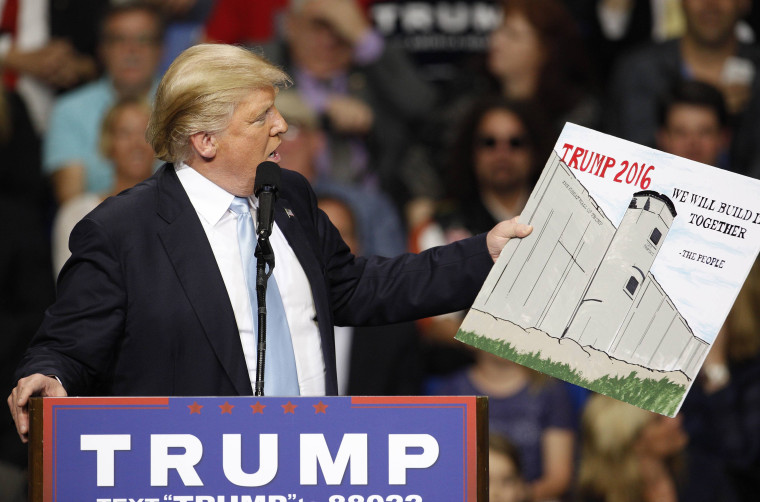
NEW HAVEN, Conn. — I’ve been studying human rights for many years. In the safety of America, as a citizen and academic, the fear that I would suffer the same fate as one of the many oppressed groups I write about never crossed my mind. Until now.
As I watched the development of the Trump campaign over the last year, I recognized all the signs of a leader that exploits minorities for political purposes.
I have seen this happen many times before in many countries where it never ends well.
I've seen it end in the denial of rights: voting rights, working rights, rights to free speech, free movement, privacy, and overall increases in discrimination. And that’s just the best case scenario. In the bad cases, it ends in ethnic cleansing or genocide.
I’m not being hyperbolic, this is part of a recognizable pattern of behavior scholars of human rights have identified in cases of grave human rights violations. It is common in these cases for politicians to exploit economic insecurity, or lack of opportunities and direct the anger of citizens to minority groups by resorting to xenophobic and racist rhetoric to gain support.
Minorities are characterized as the ones responsible for all the ills (real or not) the country faces. We have seen this happen in the past in places like Germany or Rwanda, and we see it today in Myanmar and Sudan.
Minorities in those countries did not foresee their tragic fate. Many did believe that the words of some politicians would translate into actual policies that would cost them dearly.
I don't think any country is an exception to this, and I believe we must stop this country from going down the dangerous path of exploiting minorities for the troubles we face.
I strongly believe the language used by Donald Trump can push a country down a path that leads to the denial of rights for many minorities, particularly Latinos and Muslims.

Some Latinos today see Trump’s words as just words, or assaults only against undocumented migrants.
But that's what many Jews thought when Hitler first came to power. Or what Tutsis in Rwanda thought the year leading up to the genocide.
The hateful rhetoric, they thought, wasn’t targeted against them. It was those other Jews, the non-assimilated ones, or those other Tutsis, the politically involved ones. They were, after all, German or Rwandan citizens and enjoyed all the same protections as other members of their society. Alas, we know those rights were revoked.
I know many will try to say that I'm equating Trump to Hitler and that the U.S. is not Germany.
But it's not about comparing people or events: It's about opposing a candidate who is comfortable using a certain kind of language and rhetoric about minorities and warning about "rigged" elections.
We know under emergency circumstances leaders with plans to oppress minorities throw their constitutions out the window and do what they want. And these same leaders have powers to declare emergency situations.
Imagine if some horrible attack happened on American soil. How would a President Trump react? Imagine if terrorists entered through our southern border? What do you think would happen to Latinos and Muslims? Personally, I don't think we should take that chance.
People support Trump today despite all the things he has said that threaten our constitutional rights, even among Latinos. Many tell themselves that he doesn’t mean them. He doesn’t mean me. I’m legal. I’m safe. He doesn’t mean me. I’m not a rapist or a criminal. I’m hardworking and law-abiding.
I believe language like that puts us all at risk. Who is to say Latinos won't ever be forced to carry special IDs or passports to prove their status? That fourth amendment rights won’t be suspended and the police can come to inspect your house whenever they want? Who is to say the process to naturalization for green card holders will not be more difficult? Or that green cards will stop being issued for Latinos? Who is to say travel to Latin American countries will not become more difficult? Who is to say that Trump won’t revoke previous amnesties and revoke your citizenship?
You may not believe these things could happen, but do your really want to take the chance?
I have seen language like this before, it's too eerily familiar.
In my opinion, we must vote and send a clear message that we will not let our country become a place where minorities will be scapegoated and discriminated against.
We are Americans, just as any other American, and we must fight to defend our constitution. I beg you to vote and get everyone you know to vote this Tuesday as if your life depended on it. Because it just might.
Thania Sanchez is Assistant Professor of Political Science at Yale University and is also affiliated with the Jackson Institute for Global Affairs.